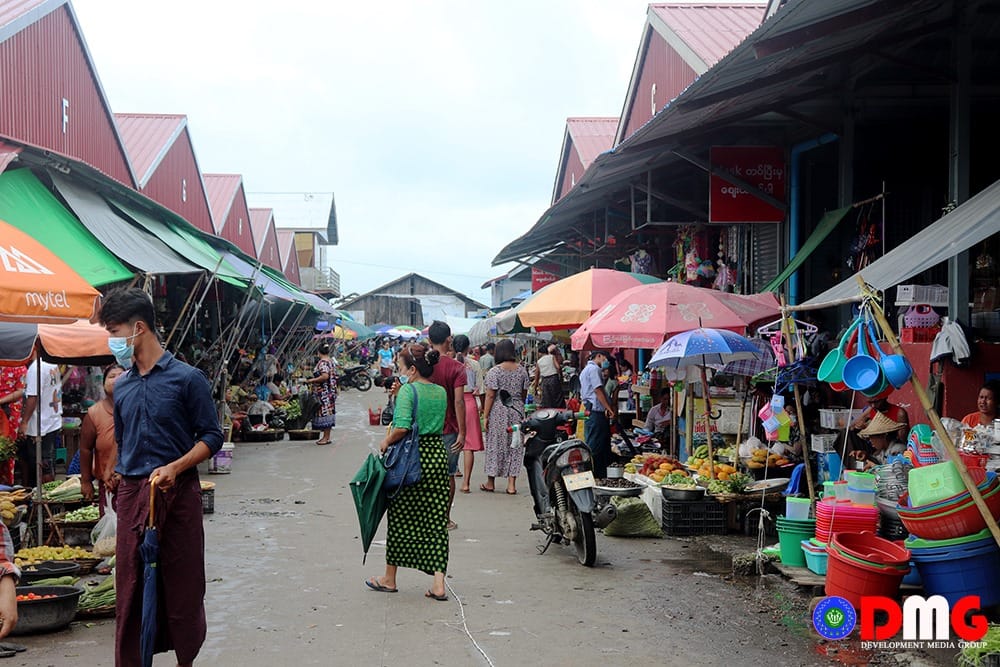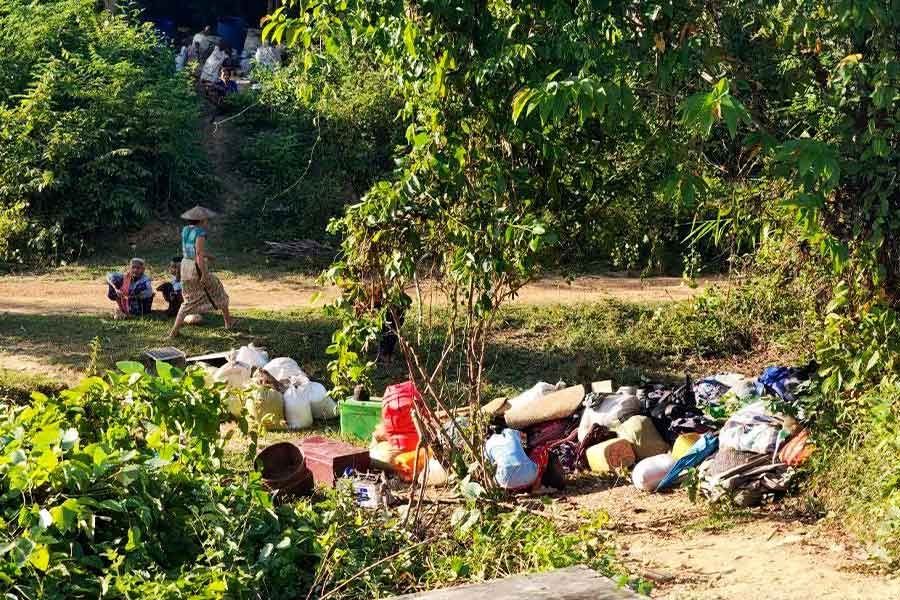- 15 mass casualty incidents from regime airstrikes reported in Arakan State since 2023
- Kyaukphyu IDPs forced to flee again amid junta airstrikes and artillery attacks
- New Diplomatic Movements Between Bangladesh’s New Government and the Arakan Public Administration
- Junta claims over 24 million ballots cast in 2025 poll, cites strong youth turnout
- ULA expands HIV prevention, healthcare services for sex workers in AA-held areas
Though kyat shows signs of rallying against dollar, no swift easing of commodity prices expected
Although the US dollar has fallen against the Myanmar kyat in the past few days from recent record highs, commodity and consumer goods prices are likely to remain elevated for some time to come, according to businesspeople.
11 Nov 2021

DMG Newsroom
11 November 2021, Sittwe
Although the US dollar has fallen against the Myanmar kyat in the past few days from recent record highs, commodity and consumer goods prices are likely to remain elevated for some time to come, according to businesspeople.
The price of a dollar last month hit a record high of about K2,300, while the official exchange rate set by the Central Bank of Myanmar on November 9 stood at K1,775 per dollar.
U Tin Aung Oo, chair of the Arakan State Chamber of Commerce and Industry, said it would take some time before market prices reflect any kind of sustained appreciation of the kyat against the dollar.
“Transportation expenditures are not down at the moment, while the dollar price is lower. So, it will take time to see commodities prices come down. The price of imported goods will not fall suddenly, because they were bought during the time when the price of the dollar was higher. They are selling remaining stocks now,” U Tin Aung Oo said.
The prices of green groceries and other basic foods, including rice, are down, but edible oil prices remain high, businesspeople said.
U Khin Maung Gyi, vice chair of the Rakhine Economic Initiative Public Company, said commodity prices have not decreased significantly despite the falling dollar price due to political instability.
“People cannot do business well at the moment because of political instability and economic volatility. So, it is not likely to lower commodity prices in the short term,” he said.
Plastic consumer goods imported from China, Vietnam and Malaysia have decreased in price slightly, said U Aye Tun, owner of Shwe Myay plastic products shop in the Arakan State capital Sittwe.
“The prices of some products we bought that depend on the dollar exchange rate are a little bit lower, just K500 or K1,000. Some goods remain at high prices,” he said.
The dollar’s surge against the kyat over recent months has resulted in rising prices for many consumer goods and commodities, from fuel oil and gold to electrical appliances, construction materials, and medicines, putting the squeeze especially on low-income households.

















